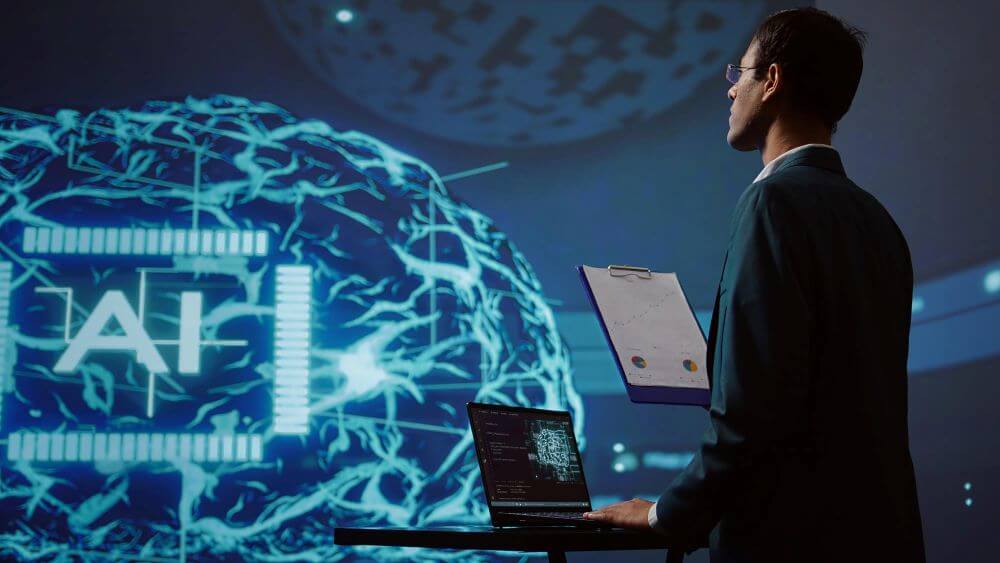The truth of the matter is that artificial intelligence has completely disrupted every single sector and industry, including defence. Currently, AI is one of the central factors that design safer and more intelligent defence intelligence systems used worldwide. At present, there are five ways AI is reshaping global defence intelligence.
1. Enhancing Threat Detection and Prediction
With the assistance of artificial intelligence, it is possible for any human to quickly analyse a variety of exabytes of data. A pattern or a signpost that may indicate the presence of a potential risk will be brought to the attention of these systems, which will draw attention to any anomalous element in the data.
After a number of satellites, reports from informants, and data from radar installations have been connected to the cross-referencer, an early warning indicating the presence of new risks is generated. It goes without saying that this new predictive technology enables the military and security forces to take preventative measures rather than reacting to potential dangers.
2. Automating Intelligence Analysis
The old-fashioned way of intelligence work can take weeks of reading, analysing, and looking at reports and pictures. AI makes it more efficient. The machine classifies and summarises the data automatically, and the analyst’s work is now done on the interpreted data, not the raw one.
Not only does it eliminate dangers associated with human incompetence, it also ensures the identification of vital patterns. Seriously, many novelties appear due to the narrow-profile developers, like an ai defense company that can invent an extra-fast and reliable means to gather intelligence.
3. Strengthening Cyber Defence Systems
The whole digital network is under a constant vigil to detect any abnormal behaviour, which may lead to possible threats of hacking or data loss. Artificial intelligence constantly performs this task.
Not only that, but artificial intelligence can learn from each of the threats it propagates and move at a pace with which the blocking system follows as you leave off again. In the process, the country can expect to rely on a stronger and more resilient digital system to sustain its defences around the globe.
4. Improving Decision-Making and Resource Allocation
To ensure that defensive leaders are able to make the appropriate decisions in high-pressure situations, precision is an essential component. Using information gathered from a variety of sources, including satellites, sensors, and even spy drones, artificial intelligence can provide reliable forecasts in a matter of seconds.
Sending troops, regulating logistics, and choosing convenient, reachable locations are all areas where executives can optimise resource use. Artificial intelligence helps improve strategic planning for military affairs by providing a reduction in reactivity. This goal is accomplished through the analysis of patterns and the visualisation of potential outcomes.
5. Enhancing Training Through Simulation
AI is currently revolutionising training, too. Virtual simulations, for instance, presently mimic actual combat settings quite remarkably.
Trainers are now able to send novices on potentially hazardous missions, and the artificial intelligence will determine the level of difficulty of the subsequent mission based on the previous abilities of the trainees. A reduction in expenses, a reduction in threat percentages, and an increase in preparedness are all resultant outcomes.
Simultaneously, the armed forces can assess deployment strategies and gear in different scenarios ahead of actual implementation, allowing preparedness with no disturbances.
The Future of AI in Defence
Because in reality, when it comes to modern defence intelligence, artificial intelligence is not just an add-on or nice-to-have but the very basis of this work. Every day, from predictive analytics to wiser cybersecurity, its uses advance, fortifying protective systems on every continent.


